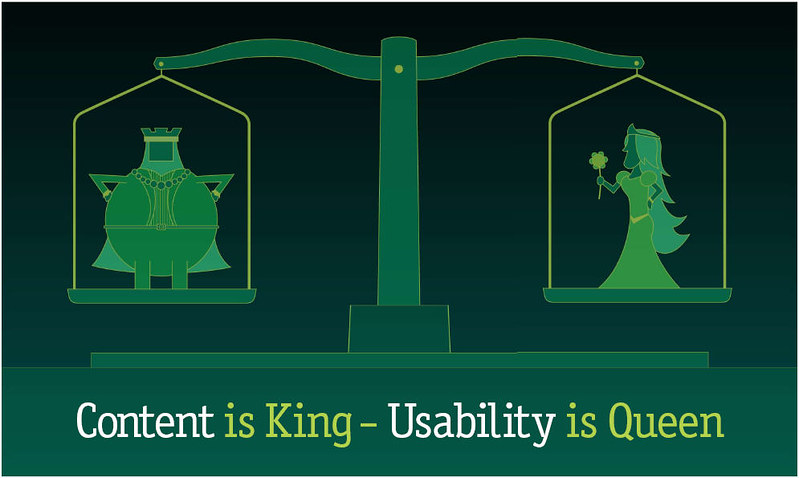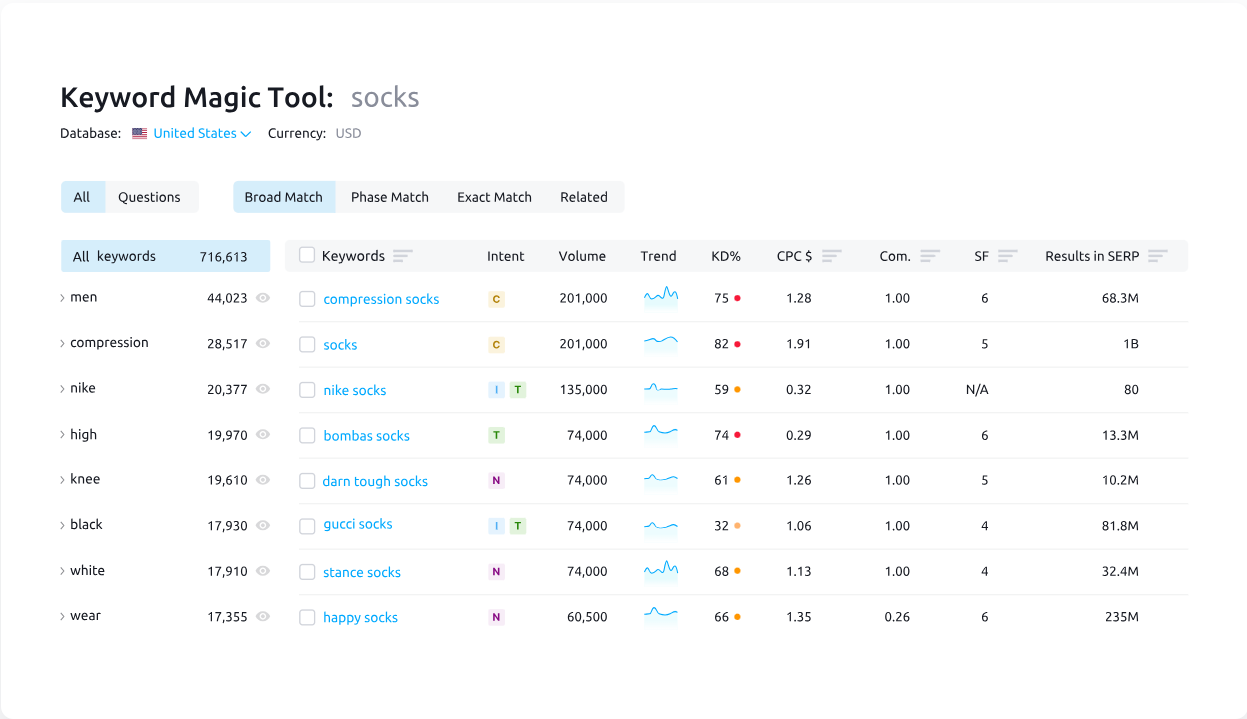Understanding how content marketing helps SEO is crucial for any marketer or business aiming to enhance online visibility and drive organic traffic to their website. Effective content marketing and SEO go hand-in-hand in driving significant website traffic. This symbiotic relationship is critical in enhancing online visibility and reaching a wider audience in today’s digital landscape.
This article delves into the synergistic relationship between content marketing and SEO, revealing strategies that boost your search engine rankings and captivate your target audience. Whether you’re looking to refine your current efforts or build a robust content strategy from the ground up, the insights shared here will guide you toward achieving unparalleled digital success.
- The Synergy: How Content Marketing Helps SEO
- Elevating Content Quality for SEO Gains
- Advanced Keyword Strategies
- Enhancing User Experience Through Content
- Generating Backlinks with Stellar Content
- The SEO Advantage of Multimedia Content
- Tracking Success: The Intersection of Content Marketing and SEO Metrics
- Propel Your SEO Forward with FVG
- FAQs
The Synergy: How Content Marketing Helps SEO
Before exploring how content marketing helps SEO, we must understand that SEO has come a long way from merely optimizing keywords and link-building. The modern SEO landscape has dynamically shifted towards relevance and quality. Search algorithms now reward meaningful content that resonates with users. The emphasis today is on high-quality, relevant content, demonstrating the crucial role of Content Marketing in influencing SEO strategies. The interweaving of these disciplines is now an inevitable imperative for online success.
In the digital age, Content Marketing and Search Engine Optimization (SEO) are two sides of the same coin. Their inherent interconnection forms the backbone of successful online campaigns. Let’s dissect this synergy and its digital relevance.

The Interconnectedness of Content Marketing and SEO
- Content Marketing provides valuable, engaging information to audiences, aiming to capture their attention and build lasting relationships.
- SEO helps this valuable content become more visible to search engines and users, ramping up website traffic.
They are two halves of a greater whole; one is incomplete and significantly less successful without the other.
Elevating Content Quality for SEO Gains
The driving force behind robust SEO strategies is undoubtedly high-quality content. It goes beyond mere text on a page and is instrumental in increasing website visibility on search engine rankings.
To enhance SEO gains, the quality of the content must be very high. By content quality, we mean accurate, comprehensive, engaging, unique, and relevant information that not only meets the users’ needs, but exceeds their expectations by providing deep insights, clear answers, and necessary solutions.
- Original, creative, and plagiarism-free content
- Relevance to the audience’s interests and search intent
- Precise, to-the-point, yet comprehensive information
- User-friendly language, structure, and format

Impact on Rankings
High-quality content can greatly improve search engine rankings due to several reasons:
- Fosters user engagement, session duration, and return visits
- Earns high-quality backlinks and improves domain authority
- Reduces bounce rates and enhances credibility, trustworthiness, and authority
Premium content is the cornerstone of effective SEO, leading a website from obscurity to high search engine visibility.
Advanced Keyword Strategies
Exploring advanced keyword research techniques and strategic integration is paramount to catapult your website into the spotlight. It provides the necessary edge to compete in today’s saturated digital landscape.
Keyword Research Revisited
Uncovering hidden keyword gems can be achieved using these advanced methods:
- Leveraging tools like Google Keyword Planner, Semrush, and Ahrefs for in-depth keyword analysis.
- Analyzing competitors’ keywords to identify gaps and opportunities.
- Recognizing long-tail keywords and LSI (Latent Semantic Indexing) keywords for broader content coverage.

Strategic Integration
Keywords should be invisibly interwoven within your content to achieve organic flow. Here’s how:
- Include keywords naturally in title tags, meta descriptions, headers, and URLs.
- Distribute them evenly throughout content whilst maintaining a sensible keyword density.
- Incorporate keyword variations and synonyms for a wider reach.
Smart keyword strategies effectively bridge the objectives of content marketing and SEO, providing a stronger foundation for success in the digital age.
Enhancing User Experience Through Content
Engaging, valuable content is pivotal in enhancing user experience and, consequently, SEO. Let’s explore how quality content influences user experience and learn practices to optimize both.
Content’s Role in UX
Skillful content creation significantly contributes to a delightful user experience. It influences key SEO metrics like dwell time and bounce rate by:
- Providing relevant, valuable information to the user, encouraging longer website interactions.
- Holding user attention with engaging, easy-to-understand content, thus decreasing bounce rates.
- Building credibility and trust through consistent, high-quality content offerings.

Best Practices
Here are a few actionable tips for creating content to ensure an enhanced UX while boosting your SEO:
- Understand and address users’ needs and queries with accuracy and depth.
- Optimize content readability with short sentences, paragraphs, relevant subheadings, and bullet points.
- Include attractive visuals (infographics, videos) to convey complex information in a user-friendly manner.
- Ensure your content is mobile-friendly to cater to a broad consumer segment.
Improving content quality benefits SEO and leads to better user satisfaction, loyalty, and conversion rates.
Generating Backlinks with Stellar Content
Securing quality backlinks is a testament to exceptional content. The nuanced shift from traditional backlink strategies to content-driven link acquisition emphasizes the value of high-caliber content.
Backlink Dynamics
Traditional backlink tactics often involved link exchanges or purchasing links, which search engines now frown upon. Present-day dynamics focus on acquiring backlinks by producing engaging, valuable content that other sources willingly link.
Success Factors
Content that stands a superior chance of earning backlinks typically possesses the following traits:
- Presents unique insights or research, offering unparalleled value.
- Covers hot topics, trends, or industry concerns to attract wider audiences.
- Creative, intriguing content formats like infographics, videos, or podcasts often command higher attention.
- Collaborative content, such as guest posts or interviews, naturally brings in backlinks.
In the current SEO landscape, the currency of backlinks is directly tied to content quality. By creating exceptional content, businesses can attract organically derived backlinks, bolstering their SEO scores and ranking higher on SERPs (Search Engine Results Pages).
The SEO Advantage of Multimedia Content
Diversifying content formats with multimedia elements like videos, infographics, and podcasts is a powerful way to elevate SEO and augment user engagement.
Diverse Content Formats
By embracing diverse content formats, businesses can tap into multiple communication channels, each offering unique SEO benefits:
- Videos: Videos are a potent content tool. Engaging videos can increase dwell time, positively influencing search engine rankings. Services like YouTube also provide additional platforms for visibility and backlinks generation.
- Infographics: These not only simplify complex topics but also enhance content shareability, potentially earning backlinks.
- Podcasts: Ranking opportunities on podcast directories and the increasing popularity of audio content make podcasts a lucrative SEO tool.
Engagement and Visibility
Multimedia content caters to user preferences and consumption habits, promoting higher engagement. Additionally, each format provides alternative avenues for visibility on different platforms (YouTube, Podcast Directories), leading to greater reach and potential for backlinks.
Thus, integrating multimedia content into your content marketing strategy can substantially enrich the user experience, amplify engagement rates, and accelerate SEO efforts.
Tracking Success: The Intersection of Content Marketing and SEO Metrics
Integrating content marketing and SEO is as much an art as it is a science. It’s not all about creating compelling content and weaving in optimized keywords—measuring success, analyzing results, and further adapting strategies are also key components. Let’s dive in.
Crucial Performance Indicators
Identify which performance indicators best reflect the success of integrating content marketing with SEO. Key performance indicators (KPIs) indicate the effectiveness of the combined forces of content marketing and SEO. Important measurements include:
- Organic Traffic: Increase in organic traffic signals a successful SEO strategy.
- Bounce Rate: A low bounce rate indicates that users find your content engaging.
- Average Session Duration: Longer session durations frequently denote high-quality, engaging content.
- Ranking Keywords: A rise in keyword rankings is a clear sign of effective content optimization.
Analyzing and Adapting
Using analytics to improve your content marketing approach for SEO is about studying patterns, noticing changes, and making necessary adjustments. This involves:
- Evaluating Changes in Traffic and Engagement: Regular check-ups on traffic and user engagement patterns can reveal the effects of recent content tweaks and SEO strategies.
- Identifying Underperforming Content: This step enables you to refine and re-optimize posts that need a boost.
- Monitoring Keyword Ranking: Keeping an eye on this helps refine your keyword strategy and keep it updated.
The intersection of content marketing and SEO metrics empowers you to refine strategies, meet your objectives, and secure a considerable edge in the digital sphere.
Propel Your SEO Forward with FVG
The harmonious blend of content marketing and SEO can significantly supercharge traffic, enhance visibility, and improve search engine rankings.
However, attracting your audience’s attention in a saturated digital space requires more than basic SEO. It demands an understanding of how content marketing helps SEO, a domain where Flying V Group excels. Our interest lies in your growth, driving us to create content strategies that spark your audience’s desire to engage with your brand.
Take action with FVG by your side, and watch as we elevate your SEO strategy to new heights, ensuring your brand not only gets noticed but remembered.
FAQs
How does content marketing help SEO?
Content marketing boosts SEO by creating high-quality, relevant content that engages users, increases dwell time, earns backlinks, and enhances keyword optimization, thereby improving search engine rankings and visibility.
Does content affect SEO?
Absolutely, content significantly affects SEO. Quality, relevance, and keyword optimization within content directly influence a website’s search engine rankings and user engagement metrics.
How does SEO and content work together?
SEO and content marketing work together as a cohesive strategy: SEO targets the technical aspects to improve visibility, while content marketing focuses on creating valuable material that attracts and retains the audience, boosting SEO performance.
What is the role of content in SEO?
The role of content in SEO is to provide valuable information that meets the audience’s needs, incorporates targeted keywords for search visibility, and earns backlinks for authority, all of which are crucial for improving search rankings.
Is content marketing part of SEO?
Yes, content marketing is a critical part of SEO. It involves creating and distributing valuable, relevant content to attract a defined audience, driving engagement, and supporting SEO goals by improving site authority and relevance.






0 Comments